
Jackie Robinson Breaks the Color Barrier
Jackie was signed to the Montreal Royals in 1946. He debuted with the Brooklyn Dodgers in 1947.

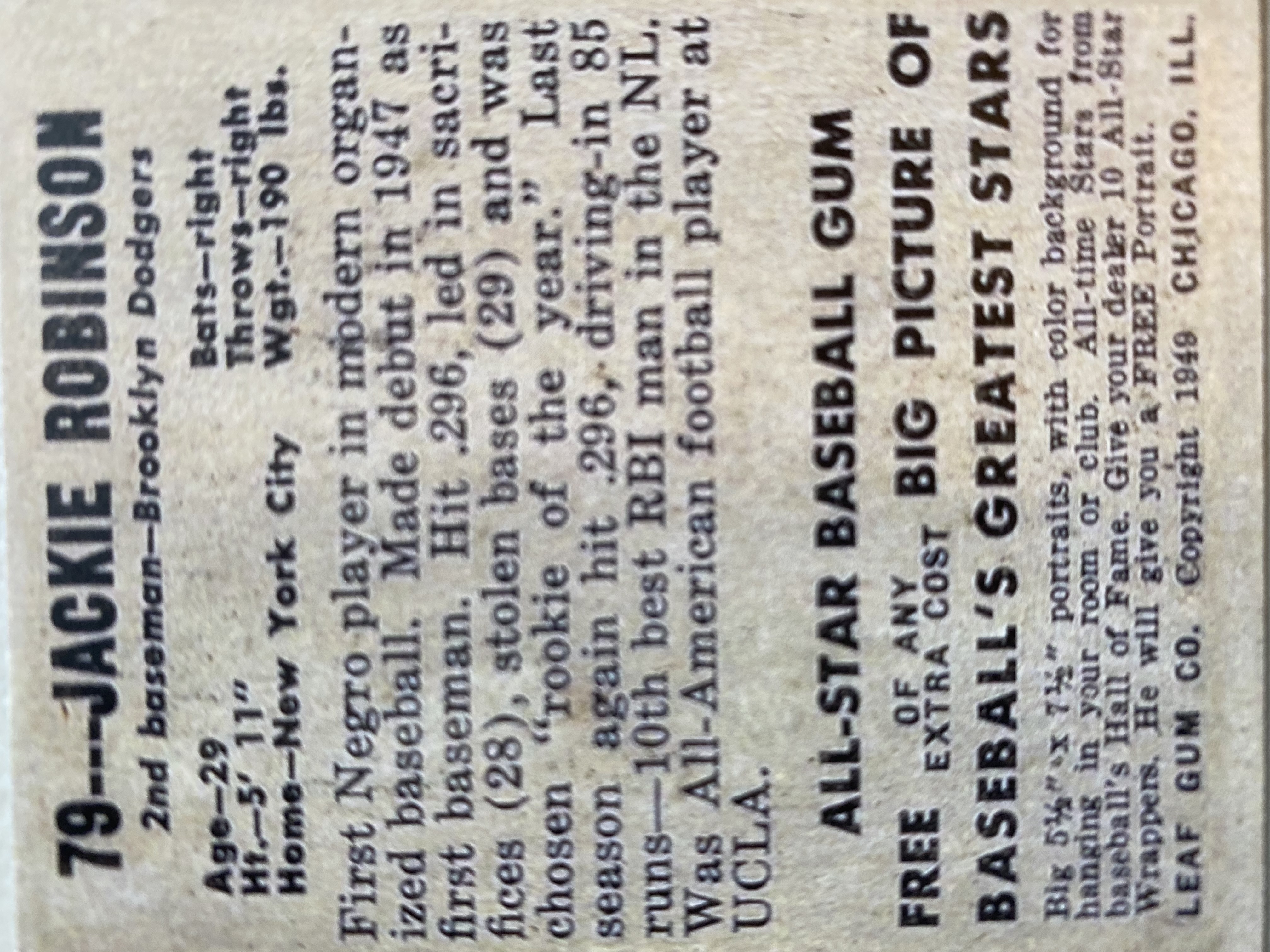
Jackie Robinson Rookie Baseball Card, reprint owned by Robert Foster, 1949
On April 15, 1947, Jackie Robinson became the first African American to play Major League baseball. Jackie Robinson had a great year and was named “Rookie of the Year”. Jackie helped the Dodgers win the National League pennant. He played for 10 years on the Dodgers and helped them go to the World Series six times. He was an all-star six years.
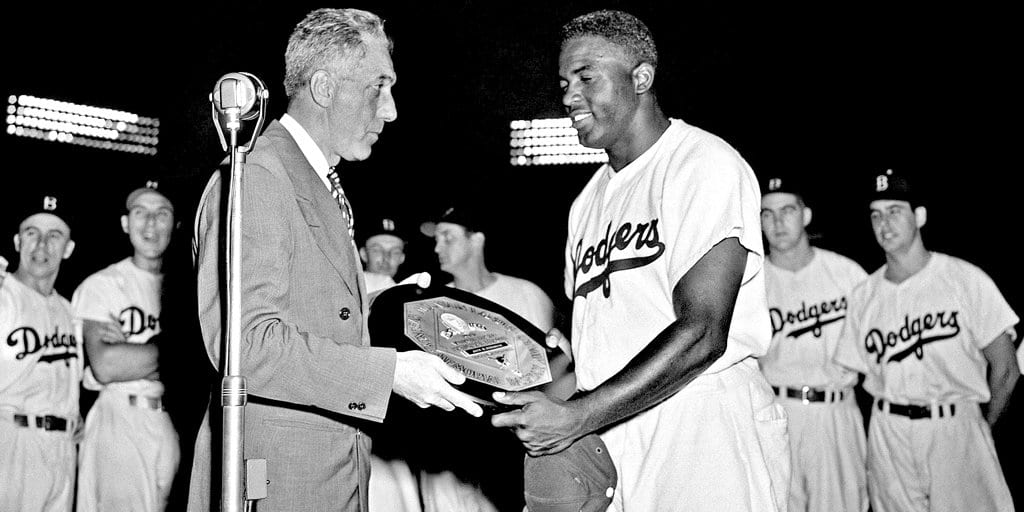
Jackie Robinson receives MVP award, dodgerblue, 1949
"Robinson didn’t make his big league debut until he was already 28 years old. Yet he became a great baseball player and would have had even more impressive stats if he’d debuted in his early 20s like most players."- Rick Swaine, Interview with Carter May, February 2, 2022
A Montreal manager didn't want Robinson to play for him, and called him a racial slur:
"And six months later, he came into my office, after the year, at Montreal, when he was this boy's manager... He said to me, 'I want to take back what I said to you last spring...I'm ashamed of it...I would like to have him back in Montreal.' And then he told me that he was not only a great ballplayer good enough for Brooklyn, but he said that he was a fine gentleman."-Branch Rickey, One Hundred Percent Wrong Club Speech, 1956
"I played with Jackie Robinson nine seasons starting in 1948. He was an intelligent, polished, articulate and a driven individual. It’s hard to imagine anyone else breaking the color barrier. Great talent, smart, educated and he had Rachel, also a class person, as his wife. When Mr. Rickey met Rachel he must have said, 'He’s got the whole package'".-Carl Erskine, Interview with Norm at 9 Inning Know-It-All, Febuary 1, 2013.
"Pee Wee's subsequent recollections indicate the personal growth that came as a result of his experience with Jack."-Rachel Robinson, An Intimate Portrait, 1996
Jackie used diplomacy when he played baseball to change the minds of his teammates, managers, and fans about segregation.
Image citation...
Classic Jackie Robinson Footage, Rogers Photo Archive, 2012
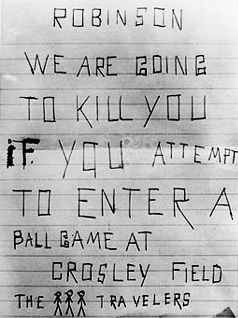
Hate Mail, Flashbak.com, 1950
Fear could have stopped Jackie from integrating baseball. He had to be courageous and persistent to play under these threats.
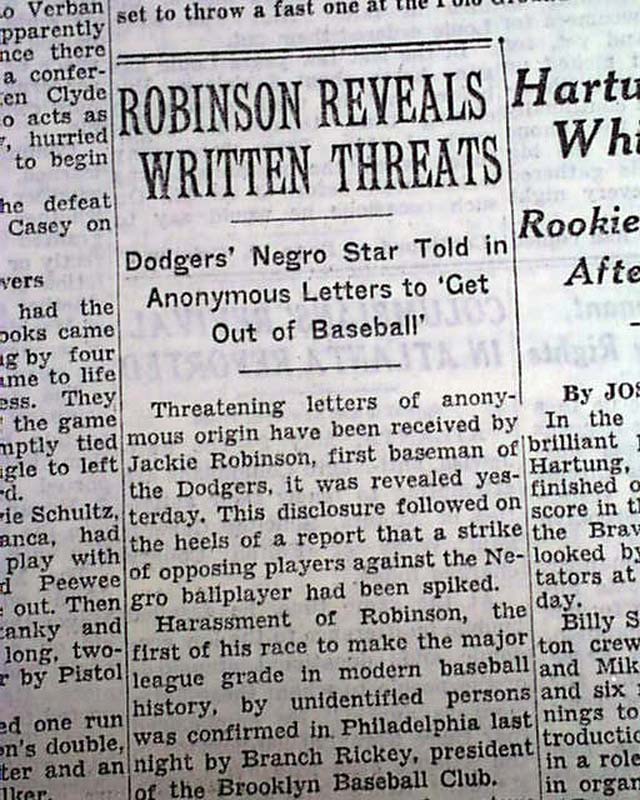
Newspaper covering Hate Mail, RareNewspapers.com, 1947
Jackie Extends the Debate to Civil Rights
People would listen to Jackie because he had been a famous baseball player, and could use his influence in the progression of civil rights.
Jackie corresponded with multiple people who he thought could help make a difference in civil rights, most were social activists and U.S. presidents.
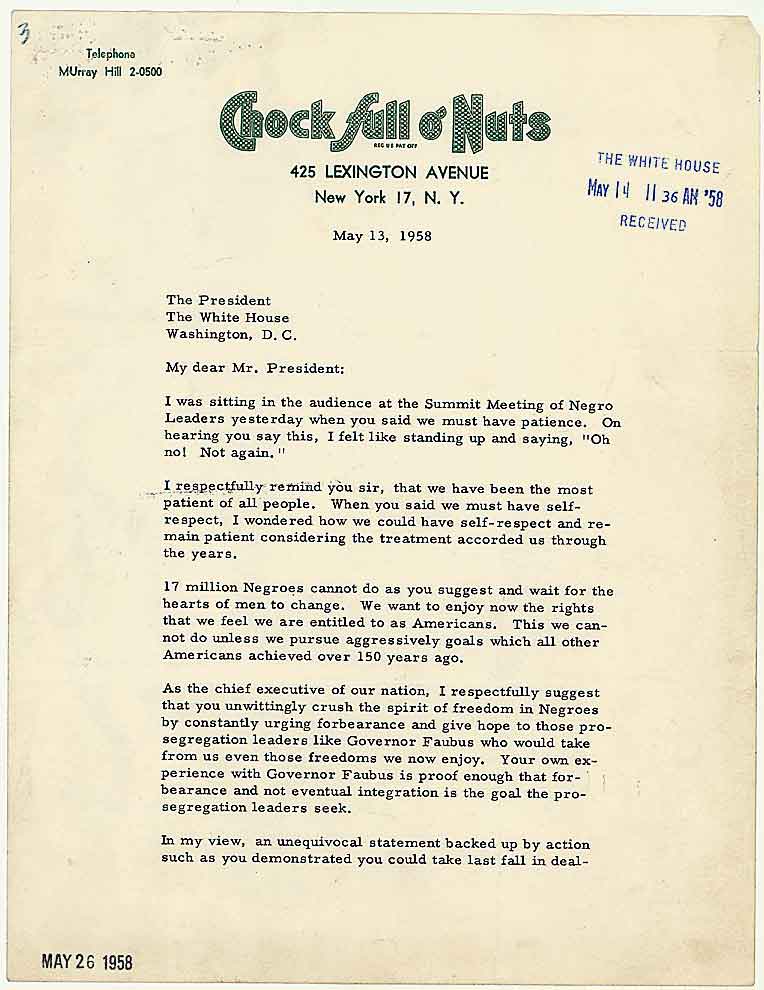
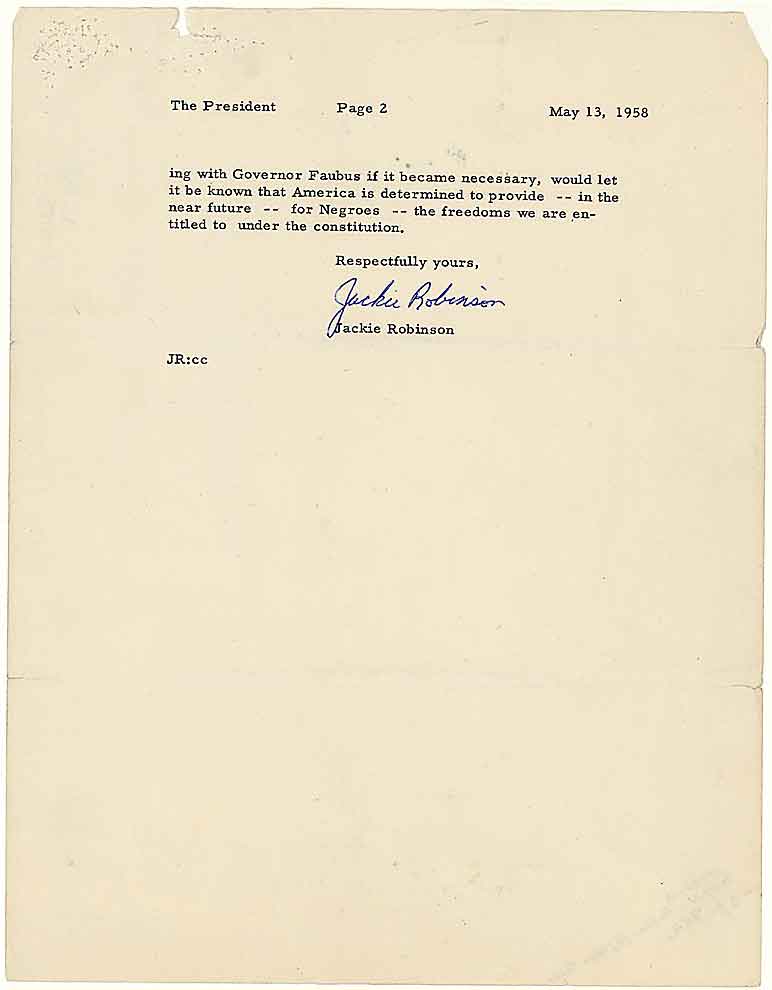
"My dear Mr. President: I was sitting in the audience at the Summit Meeting of Negro Leaders yesterday when you said we must have patience. On hearing you say this, I felt like standing up and saying, 'Oh no! Not again.'
I respectfully remind you, sir, that we have been the most patient of all people. When you said we must have self-respect, I wondered how we could have self-respect and remain patient considering the treatment accorded us through the years.
17 million Negroes cannot do as you suggest and wait for the hearts of men to change, we want to enjoy now the rights that we feel we are entitled to as Americans. This we cannot do unless we pursue aggressively goals which all other Americans achieved over 150 years ago."
Letter From Jackie Robinson to President Eisenhower, National Archives, 1958
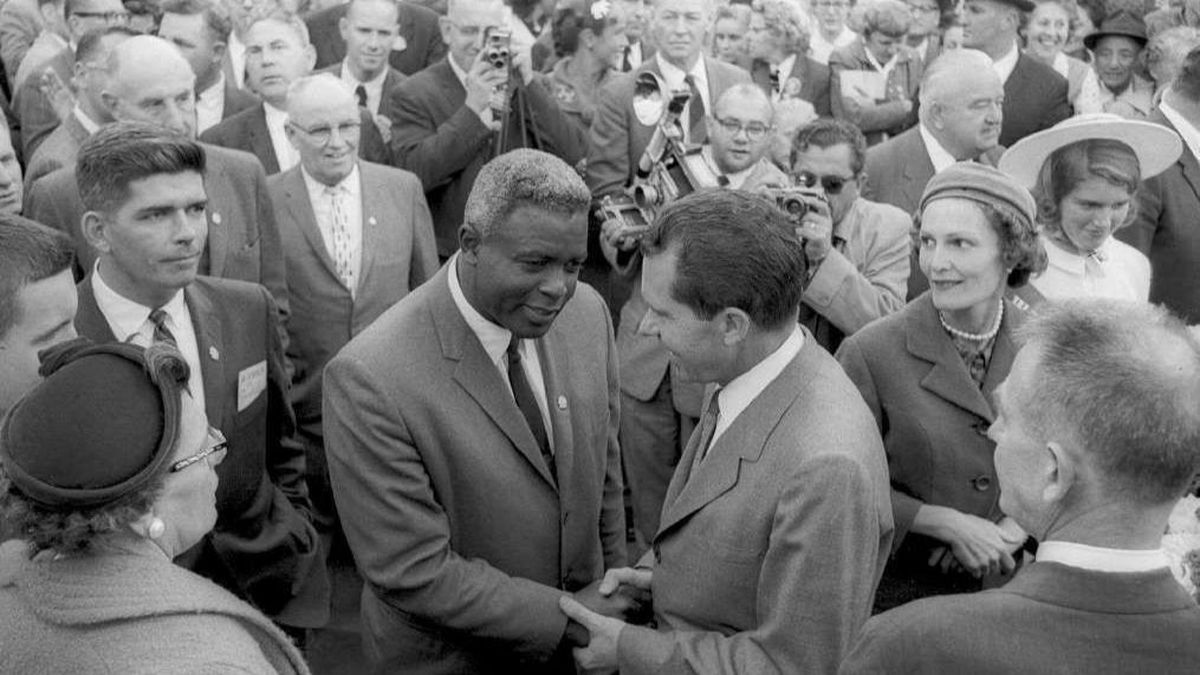
Jackie Robinson and Richard Nixon, Chicago Tribune, 1960
Jackie campaigned for presidential candidates who he thought would help in civil rights.
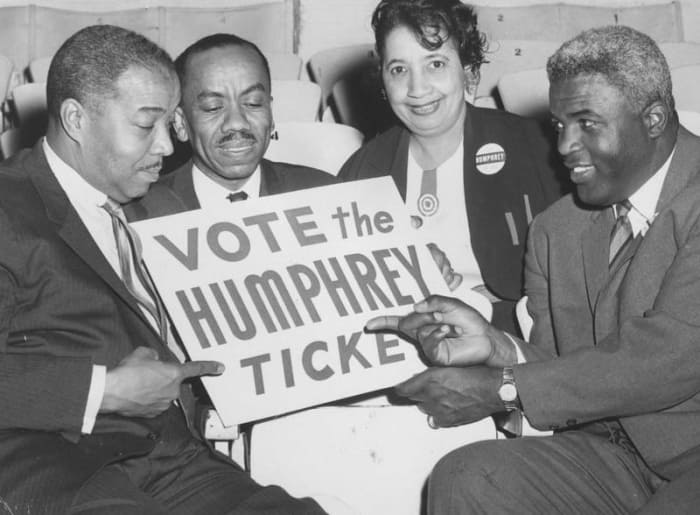
Jackie Robinson campaigns for Hubert Humphrey, Yardbarker.com, 1968
Jackie joined the Civil Rights Movement led by Dr. Martin Luther King Jr. and marched with other protesters.
“Jackie Robinson made my success possible. Without him, I would never have been able to do what I did.”- Martin Luther King Jr., 1968
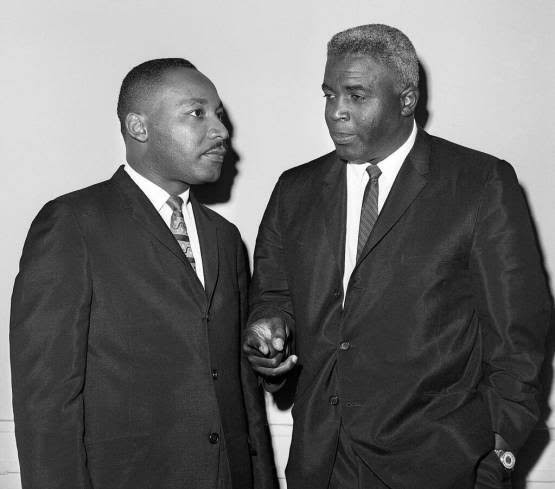
Martin Luther King Jr. and Jackie Robinson, Dodger Insider, 1962
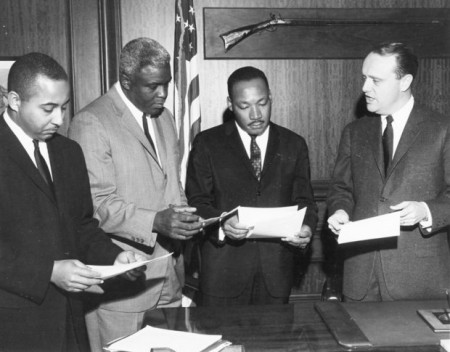
Robinson and Martin Luther King Jr. at civil rights meeting, LA Sentinel
"Robinson paved the way for Civil Rights, so he certainly has a role- maybe not as much as MLK but he was a pioneer." -Thomas W. Zeiler, Interview with Robert Foster, December 13, 2021
"I won't 'have it made' until the most underprivileged Negro in Mississippi can live in equal dignity with anyone else in America. Life is not a spectator sport. If you're going to spend your whole life in the grandstand just watching what goes on, in my opinion you're wasting your life."- Jackie Robinson, National Archives, 1960
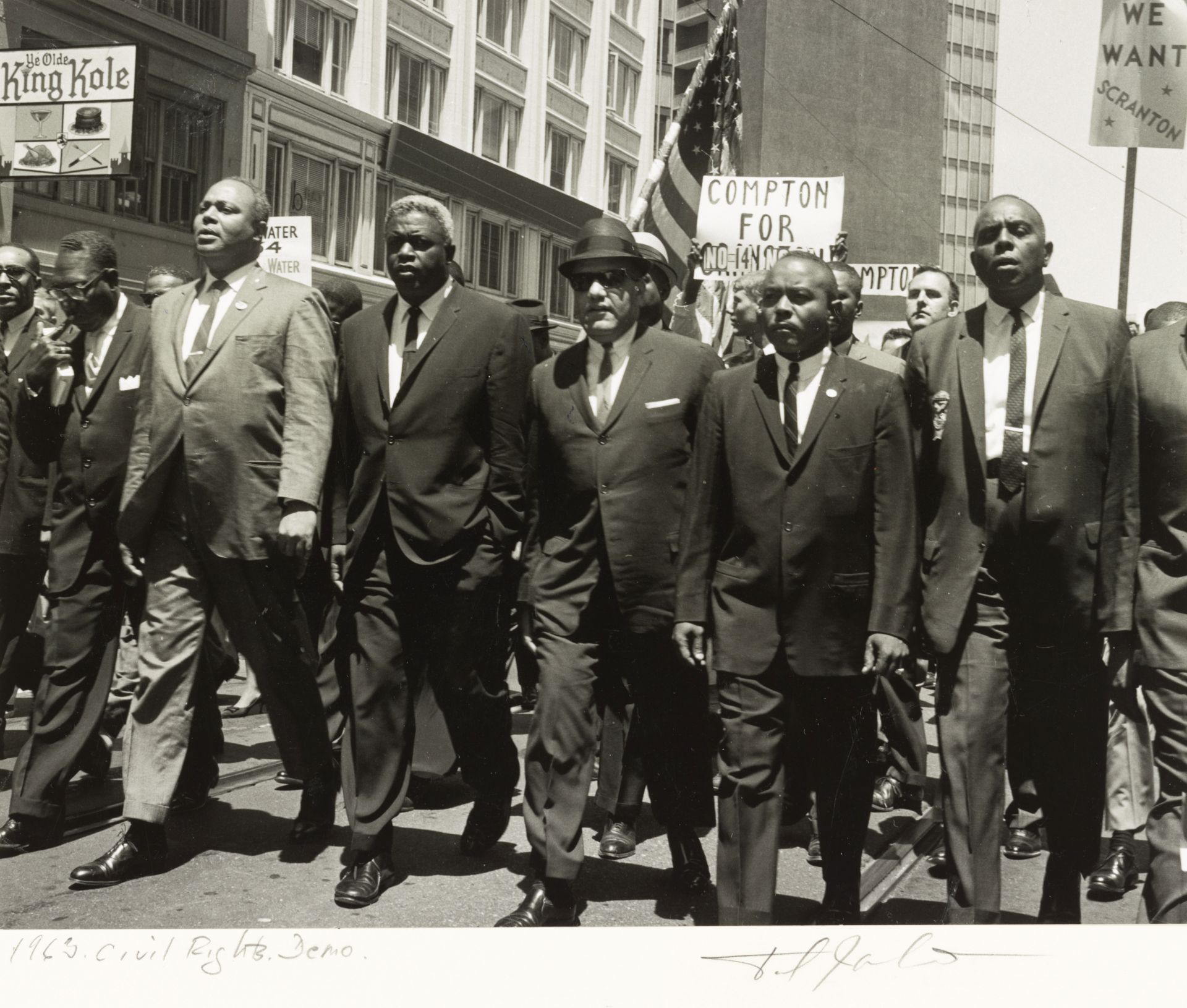
Jackie Robinson among 35,000 demonstrators for civil rights, Thirteen.org, 1964